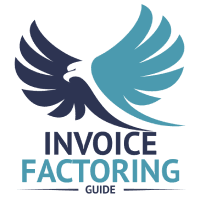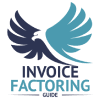Asset-Based Lending
Looking for a smart way to access capital for your business? Asset-based lending (ABL) offers a viable solution to give you the money you need to support your growth or operational plans. With asset-based loans, you use your tangible business assets as collateral to secure a loan, whether it be your invoices, equipment, or real estate.
We know that invoice factoring gives you immediate, debt-free financing, but sometimes you may need extra capital to cover larger expenses. Understanding this, some factoring companies have expanded their service offerings so that qualifying businesses can use their invoices (or other assets) to secure a loan.
Discover the perks and features of asset-based lending for SMEs:
Fast Access to Funding
When it comes to asset-based loans, lenders prioritize the value and loan-to-value ratio of the collateral you’re putting up, instead of your company’s creditworthiness. As a result, it’s a breeze for your business to obtain funds in a quick and efficient manner.
Flexible Terms
Asset-based loans boast adaptable terms. Since the loan is backed by valuable collateral, lenders are more inclined to offer adjustable conditions, such as extended repayment periods or revolving credit facilities.
Tailor-Made Financing Solutions

Asset-based lending’s flexible terms pave the way for customizable financing options that cater to your business’s unique needs. The advance rate, or the percentage of collateral value a lender will provide, can be adjusted based on factors such as:
In some cases, asset-based loan providers may include covenants or requirements to ensure you adhere to the loan agreement. These covenants can be adapted based on your industry or credit history.
Wide Range of Assets Accepted
In today’s digital age, with many businesses operating online, many companies won’t always have an abundance of traditional property, plant, and equipment (PP&E) assets at their disposal (long-term tangible assets). Fortunately, asset-based lending extends funds against a variety of liquid assets, including marketable securities, inventory, appraised trademarks, and accounts receivables.
Enhanced Security
If you fail to repay your loan, the factoring company (or lender) can repossess the assets you used as collateral and liquidate them to recoup the loan amount. So, to safeguard your finances, many finance companies implement measures that help borrowers avoid defaulting on their loans, including:
Asset-Based Lending vs. Factoring
If you’re deciding between invoice factoring and asset-based lending, it’s important to understand the difference:
Remember that factoring companies can also offer asset-based lending if it’s a better fit for your needs or if you need additional financing on top of your existing factoring agreement.
Take a moment to weigh your options before deciding on which financial solution would be the best for your unique situation. Be sure to use this Factoring Guide to learn more about invoice factoring and the additional services factoring companies can offer, including asset-based lending. Alternatively, get in touch with the Invoice Factoring Guide (IFG) team for help finding the right factoring company for your business. Request a quote today!
Why Healthcare Companies Choose Invoice Factoring
“I was completely impressed with their professionalism and customer service.”
“I had a great experience from the onboarding to the factoring.”
“Our transition has been very smooth and easy.”
“Awesomeness personified. This company saved our business. Instead of having to wait around 2 months for our payments we get them within days.”
“They give me the fast cash I need and the team there is great. My rep always takes the time to help me out.”
“The people there really care about you and I’m very happy with the service I’ve gotten.”
Get an instant funding estimate
Results are estimates based on the calculated rate and the total invoice amount provided.
Actual rates may vary.
Request a Factoring Rate Quote
PREFER TO TALK? Call us at 1-844-887-0300
A Network Featured by the Media






Partners Affiliated with Industry Leaders





